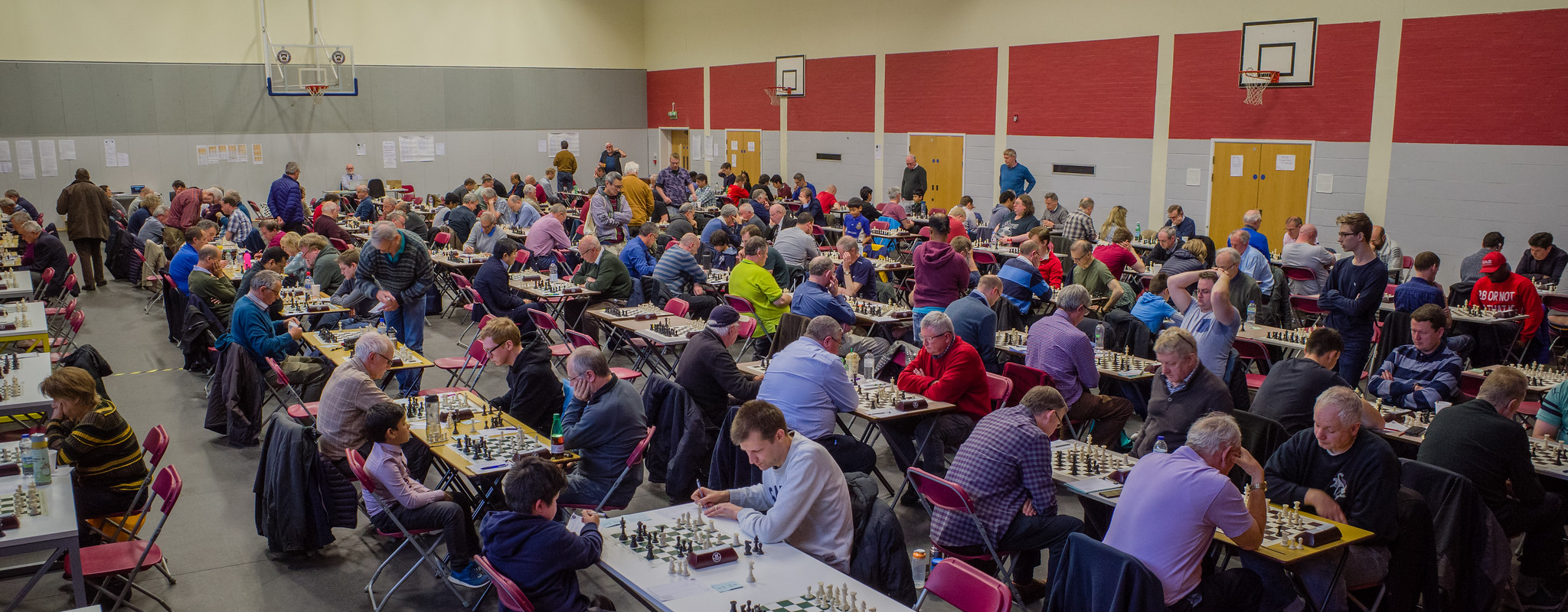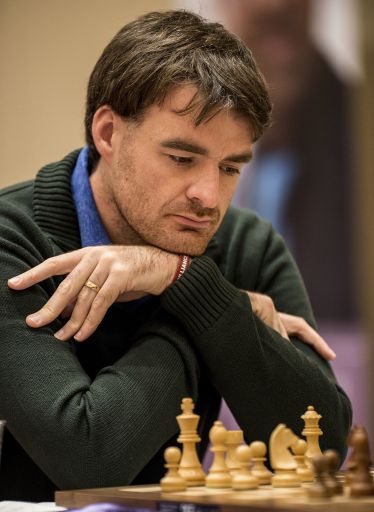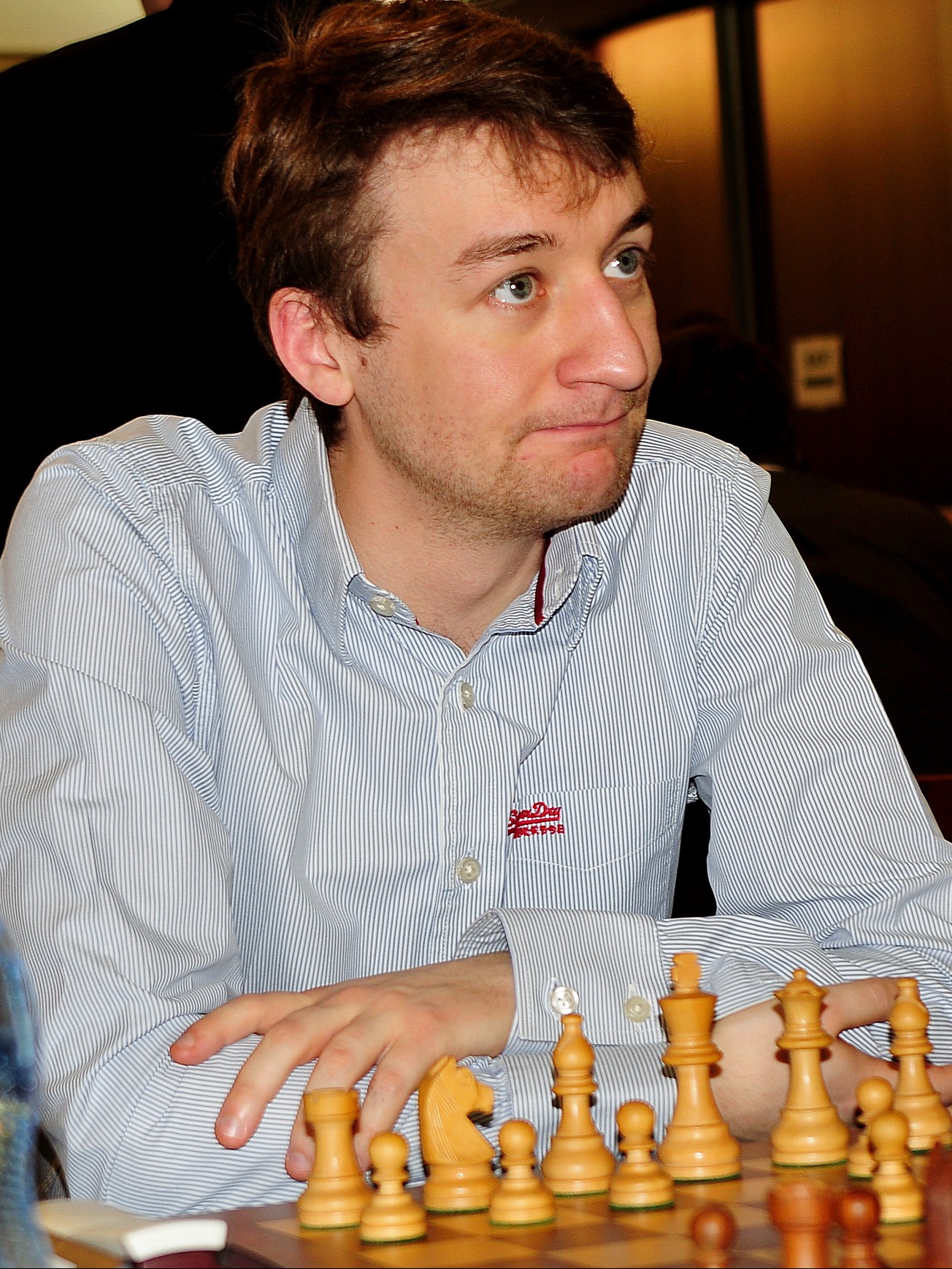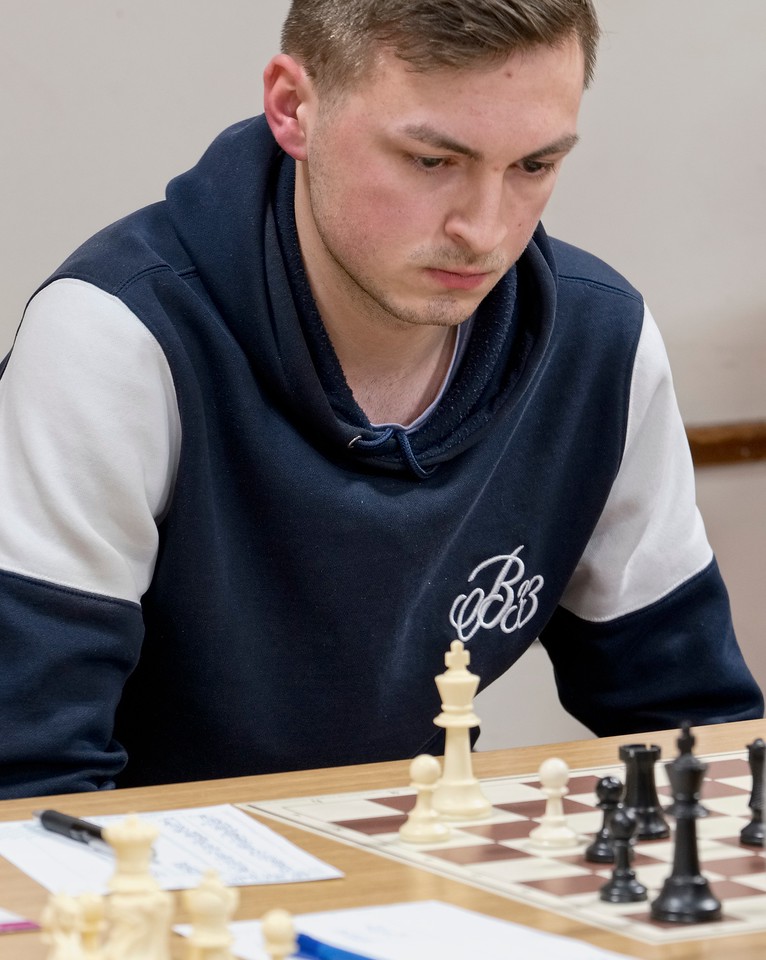And so to St Albans which has been something of a pilgrimage for this writer over the years. A combination of spring sunshine and lakeside walks in a city of historical significance forms an attractive background to a chess congress. ‘Pilgrimage’ is an appropriate word to use as part of the city’s importance is its religious history. St Alban was the first British martyr, executed in the 3rd or 4th century for sheltering a Christian priest from the Romans, and St Albans Cathedral now stands near the believed site of his execution. The Romans had named the settlement Verulamium and its significance continued through Anglo-Saxon and medieval times. The Wars of the Roses began with the Battle of St Albans in 1455 and a second battle was fought there six years later.
The chess congress is in its 37th year. Its former home was St Albans School situated in the town centre – St Albans feels too small to be called a city – which was ideal for the shops, pubs and bookies (the congress invariably seems to coincide with the Grand National) but less convenient for car parking. The current venue, St Columba’s College, is a longer walk from the centre but car parking is not a problem. The walk around the lake in Verulamium Park is a pleasant one where herons can be found nesting at this time of year and RSPB volunteers offer their ‘scopes’ for viewing. The congress is always popular. Easy access from London and the timing of the congress during the Easter school holidays traditionally guarantees around 200 players of all ages. This year saw a record turnout of 250 and the online entry was closed a few days early. One of the unlucky ones who ‘missed the cut’ was Toby Stock, formally of this parish, who turned up nevertheless hoping in vain for a late withdrawal. Another former Broadstairs member, Oliver Finnegan, who did make the list probably wished he hadn’t bothered as despite being graded near the top of the Major, he lost two of his first three games and promptly withdrew.
The congress is run by St Albans Chess Club and it’s not clear who is in charge as there always seems to be an army of volunteers. Ray Claret and Terry Douse are two and Michael Flatt and Tony Corfe were the arbiters. Two is probably the minimum required in a hall with 250 players (see the above photo). Fortunately for them, everything seemed to run smoothly this year with a couple of clock problems and a minor injury appearing to be the only hiccups. Prize money totalled £3,400 and this was increased on the day to take into account the strong turnout. Consequently, five extra prizes were awarded to the ‘lucky losers’ – those who just missed out on a prize in each of the five sections.
The Open had an impressive lineup, headed by GM Chris Ward and IMs Richard Pert, Richard Bates (last year’s winner), and the latest chess wunderkind, ten year old Shreyas Royal, who already has an ECF grade of 186. All were muscled out of the way by the eventual winner, John Merriman, of the Drunken Knights, who may not be quite so drunk in the immediate future as they have just been turfed out of the pub that has been their home for 29 years. Merriman defeated Bates in the last round to finish on 4½/5 while Ward and Pert drew. Full results can be found here and click here for more of Brendan O’Gorman’s photographs of the congress.





